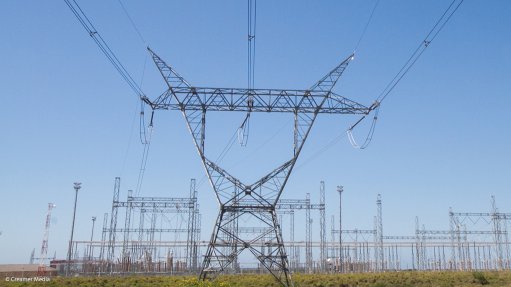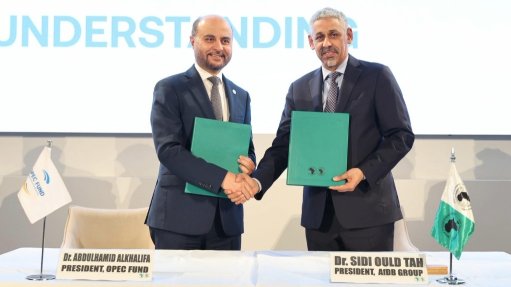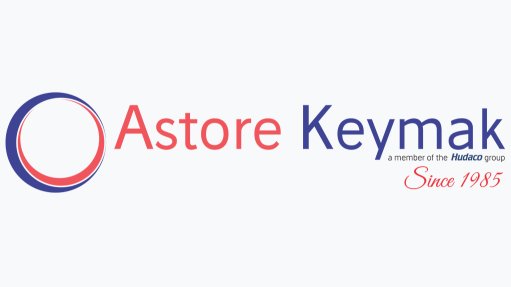Bringing noise and maintenance back on track
This article has been supplied.
Mainz is the capital and largest city of the federal state of Rhineland-Palatinate in Germany. Located on the Rhine river at its confluence with the Main river, it is regarded as a major transport hub in southern Germany and for European distribution. The city has had a tramways network in operation since 1883. Today the popular service is operated by Mainzer Mobilität (MM), the public transport operator for Mainz.
In the past, on some sections of the tracks, trams would occasionally emit a noisy squeal as they approached. In addition, MM found that the track was becoming increasingly worn. One of the causes of this was the lack of a suitable track lubrication method. The situation was remedied using several solutions from SKF lubrication systems. Since these have been in use, the trams run more quietly. In addition, the network uses significantly less lubricant and maintenance has become much more efficient, both welcome bonuses to MM.
MM, a subsidiary of the city's municipal utilities, has approximately 500 employees, who look after a route network of around 40 kilometres. In addition to numerous buses, the fleet also boasts 41 trams. However, at certain locations in the city, these would emit too much noise as they passed by. "The existing lubrication systems were 25 years old, and the control system was an in-house development. We were no longer able to make precise adjustments, and there were no spare parts left," explains Kai Buhl of MM Infrastructure Management. In addition, the consumption of lubricants was excessive. To change this, MM decided to renew the systems, step by step.
"We wanted a simple solution and we sat down with several suppliers," says Kai Buhl. This resulted in an offer from SKF. "We proposed just replacing the pump cabinet as a first step, while leaving the old technology in the track," says Tobias Weber, Account Manager Railway Lubrication Business Unit.
MM was able to test the user-friendly system for six months and was very pleased with the outcome. As a result, it decided to continue its partnership with SKF to oversee additional projects.
Obsolete track technology gradually replaced
The network was in need of several upgrades for modernization. In addition to replacing the pump cabinets, SKF identified a need to replace obsolete track technology.
MM accepted the idea, and a progressive system from SKF was initially used. This involves a wheel sensor that registers passing wheels and triggers a lubrication cycle. The lubricant is conveyed from the pump to the progressive distributor, which distributes the lubricant evenly and accurately between all the lubrication channels drilled into the rails, at 0.2 cm3 per outlet. "It is slightly more than a drop of water," says Tobias Weber. After the distributor has supplied all the lubrication points, the pump stops and is ready for another cycle.
New SKF single-line system
Once planned expansion work of the track network at the Mainz Zollhafen port was imminent, MM opted for a new technology from SKF: the single-line system. Here too, the approaching tram triggers a lubrication cycle and the pump sends the lubricant to single-line distributors. "However, these supply each lubrication channel with only 0.05 cm3," says Swen Dorsch, Supervisor Field Service at SKF. Compared to the progressive system, this is a significant advantage, as the small output volume is better absorbed by the wheels and the track bed remains clean.
Lubricant savings of up to 70 percent
The use of SKF technologies in different variants has paid off for MM. "Today we achieve lubricant savings of up to 70 percent compared to our old solution," says Kai Buhl.
"We are very happy with the various systems and receive nothing but positive feedback from our employees," he says. There has also been a significant reduction in the amount of maintenance effort that is now required.
In the past, Kai Buhl would send his employees out several times a week to carry out checks. Today four times a month are enough. In addition, filling the grease tanks is now easier, faster, and cleaner across the board.
Kai Buhl also praises the collaboration with SKF. "We felt we were in excellent hands; we often went out together, examined the problem areas closely and designed the systems accordingly," he says. Noise emissions have fallen significantly thanks to the SKF solutions. Since then, five progressive and three single-line systems have been installed on the MM track network. Kai Buhl has no doubts about further cooperation with SKF. His long-term aim is to convert other old systems to the single-line technology.
Meanwhile, for SKF lubrication systems, the innovative lubrication solution appears to be developing into a success model that continues to prove popular and beneficial. Most recently, the company has won a contract from the city municipal utilities in Ulm, Baden-Württemberg, where it will be fitting a total of 51 installations with the single-line system.
Article Enquiry
Email Article
Save Article
Feedback
To advertise email advertising@creamermedia.co.za or click here
Comments
Press Office
Announcements
What's On
Subscribe to improve your user experience...
Option 1 (equivalent of R125 a month):
Receive a weekly copy of Creamer Media's Engineering News & Mining Weekly magazine
(print copy for those in South Africa and e-magazine for those outside of South Africa)
Receive daily email newsletters
Access to full search results
Access archive of magazine back copies
Access to Projects in Progress
Access to ONE Research Report of your choice in PDF format
Option 2 (equivalent of R375 a month):
All benefits from Option 1
PLUS
Access to Creamer Media's Research Channel Africa for ALL Research Reports, in PDF format, on various industrial and mining sectors
including Electricity; Water; Energy Transition; Hydrogen; Roads, Rail and Ports; Coal; Gold; Platinum; Battery Metals; etc.
Already a subscriber?
Forgotten your password?
Receive weekly copy of Creamer Media's Engineering News & Mining Weekly magazine (print copy for those in South Africa and e-magazine for those outside of South Africa)
➕
Recieve daily email newsletters
➕
Access to full search results
➕
Access archive of magazine back copies
➕
Access to Projects in Progress
➕
Access to ONE Research Report of your choice in PDF format
RESEARCH CHANNEL AFRICA
R4500 (equivalent of R375 a month)
SUBSCRIBEAll benefits from Option 1
➕
Access to Creamer Media's Research Channel Africa for ALL Research Reports on various industrial and mining sectors, in PDF format, including on:
Electricity
➕
Water
➕
Energy Transition
➕
Hydrogen
➕
Roads, Rail and Ports
➕
Coal
➕
Gold
➕
Platinum
➕
Battery Metals
➕
etc.
Receive all benefits from Option 1 or Option 2 delivered to numerous people at your company
➕
Multiple User names and Passwords for simultaneous log-ins
➕
Intranet integration access to all in your organisation


















